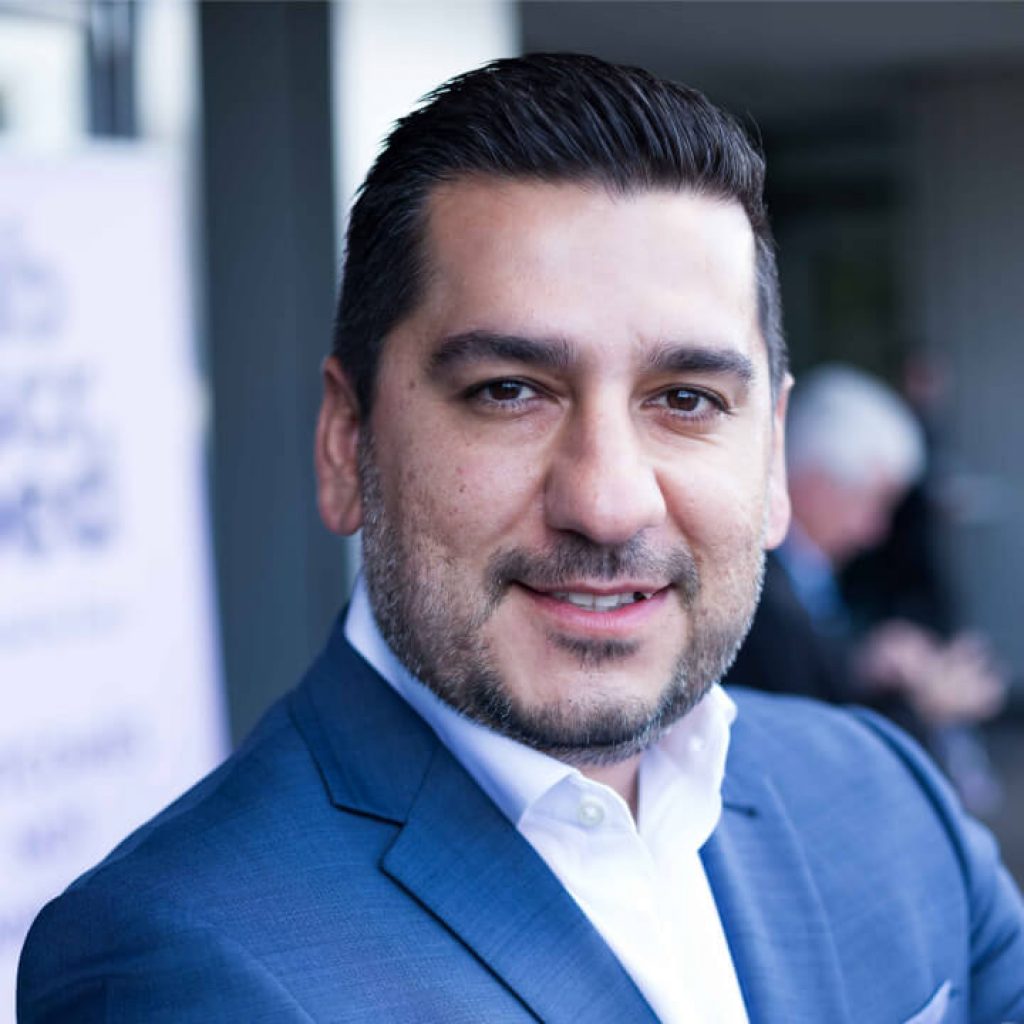
- Author: Cameron Donovan
- Posted: December 7, 2020
The New Breed of CFO: Strategist, Problem Solver, Persuader
By Cameron Donovan
This is a joint story between subscription technology leader Zuora and Australia’s largest car subscription provider, Carbar. In it, Carbar CFO Mathew Tao explores the radically changing role of the CFO, particularly for subscription companies, and the challenges of working in a startup disrupting a well-established industry.
Mathew Tao describes himself as a “financial storyteller”.
He’s the Chief Financial Officer of Carbar, Australia’s leading car subscription platform, and as few as five years ago he may not have felt comfortable using these words.
In 2015, Mathew was working as a management consultant at Accenture. One of his jobs was to consult ASX company CFOs on global best practice.
“We often advised CFOs that a high-performing finance function created added value through developing scalable systems and data analytical capabilities.”
This was considered a marked progression from conventional thinking that said a CFO was a company’s head accountant. Or, as CEO of Zuora put it recently, “Traditionally, 80% of a CFO’s job was to tell people what happened. To keep score. To track the budget.”
But the role is in flux, and Mathew says the advice he would have given half a decade ago would now be only partly relevant.
“It’s evolved again. A CFO is not just looking at historical numbers, looking at cost and systems, but really being a lot more strategic and that goes to where the world is heading. Businesses are changing rapidly. The environment is shifting and there are different externalities impacting your business.
“It’s important for a CFO to work very closely with the CEO to navigate these changes and be able to think more laterally – and more strategically – on how to support the business to take advantage of certain opportunities and and defend against certain risks.”
“I don’t come from an accounting background”
There’s more to Mathew’s role than that, however, and he uses the term “financial storyteller” advisedly. It’s not a throwaway buzzword; it describes a central requirement for so many of the startups operating in a constantly evolving environment and recurring revenue companies that power the Subscription Economy, an era marked by the end of ownership and a preference toward subscription services.
In the case of Carbar, in fact, they wanted in their CFO a person who could use numbers to tell a compelling narrative more than a traditional accountant.

“I don’t come from an accounting background. When [Carbar co-founder] Des [Hang] offered me that role, I was a little bit concerned. But from his viewpoint, he was saying ‘Look, accounting is very important and finance is very important, but these are skills that can be hired.’
“And that’s what I’ve done. I’ve hired a very experienced team of accountants that can support the technical aspect of the role. What Des saw as more important was being able to work with a very unstructured environment, to think strategically, to work on investor relations, to raise money for multiple options where the business could end up.”
No more Dr. No
This may sound like an unusual or even an outlier case, but Zuora’s Vice President and Country Manager for Australia and New Zealand, Iman Ghodosi, says it’s becoming more and more common.
“Earlier this year, Zuora hired a new CFO. Todd McElhatton has previously worked at some of the world’s biggest cloud and SaaS companies, among them Oracle and SAP. He spoke about the role of the modern CFO shortly after starting and said that he or she is no longer ‘Dr. No’, telling other departments why they couldn’t buy a new system or hire a new person,” Ghodosi explains.

“Instead, he said, they must be well-versed in soft skills like communication and leadership; they need to be calm and thoughtful. They also spend a lot more time talking to people than they once did, and not just accountants, but all sorts of employees, as well as analysts, the media, customers, and potential investors.”
This describes Mathew Tao almost to a tee.
A different perspective on value
Mathew says he devotes large portions of a typical month speaking with team members outside the finance function, as well as customers and potential subscribers.
“I spend a lot of time building new processes and building new products as they relate to finance. Because subscription is a very finance driven capability at Carbar, we need to have the right billing system and the right invoice management system”
Matthew Tao, CFO | Carbar
“I spend a lot of time working with the product and tech team to make sure we have the right systems to support that customer journey.”
He says he talks with customers because they are nothing less than central to any subscription company’s success.
“Often CFOs are too focused on the bottom line and focused on financial value. Speaking to the customer provides a different perspective on how the business provides value, which may not be measurable in dollar terms.
“Carbar is a subscription business disrupting the automotive space which is fundamentally shifting from a traditionally product driven industry to an experience and customer driven industry. Having the customer at heart is directly correlated to our future growth. If we provide a poor experience our churn increases; if we keep the customer happy we start building a healthy recurring income.”
Raising capital requires more than financial acumen
Perhaps where the ‘soft’ skills – the ability to construct a persuasive story – come in most useful, though, is in Mathew’s relationship with investors. One of the first tasks Mathew was involved with after starting at Carbar was the company’s Series B capital raise. The company raised more than $16.8 million and brought in IAG as a major investor.
“That was a very big milestone for Carbar. It provided us with the financial and corporate backing to really scale the subscription offering. After that – and this goes to why the CFO role is moving towards a generalist and strategic role – we realised that to keep on scaling, Carbar would need to own its assets in order to control the customer experience. That meant buying our own cars.
“Very quickly, we had to go from a capital light approach to a capital heavy approach. So then we needed to understand how to shift our corporate model and our capital structure to support more debt and leverage debt as a cost-effective way to grow our business.”
Watching three metrics like a hawk
Despite this distinctly non-traditional focus on interaction with stakeholders, strategy, forecasting and storytelling, numbers still play a critical part in Mathew’s work.
“There are three key metrics we keep a hawk eye on: customer acquisition cost, churn rate and customer lifetime value.”
They are, Mathew says, related. The first is about ensuring the service remains so good that marketing becomes less and less important and so the cost of gaining and retaining the attention of subscribers goes down.
The second is about watching how many customers decide to give up their subscription – known as “churning” in the industry. As with customer acquisition cost, if the service remains outstanding, churn rate inevitably remains low and the business thrives.
Churn rate staying low has been a prime reason for Carbar’s phenomenal growth over a relatively brief period of time. The company was established in 2016 and now offers cars in Melbourne, Sydney and Brisbane. Between June 2019 and the early 2020, it enjoyed a 1000 percent increase in its active pool of subscribers.
But when COVID-19 hit, the company assumed that their churn number would simply have to go up. Their best case scenario was a plateau period. They were wrong.
Rather than scaring subscribers and potential customers away, Mathew says the virus ushered in a new era where digital transactions and service acceptance went from being on the margins – or, at best, seen as a handy alternative to bricks and mortar – to becoming thoroughly mainstream.
Carbar has excelled during the pandemic.
“[We’re] managing a no-commitment, ‘cancel anytime’ subscription model. Maintaining flexibility is critical and we’re tackling this with partners like Zuora to ensure our pricing is competitive and we reward customers for their loyalty.”
“Zuora is a powerful tool that allows us to understand our customer segmentation, manage billing and collection to deliver on an exceptional experience. But it needed to be more than that at the beginning of COVID-19. We needed to understand our business trajectory and not get caught up in the noise of panic caused by the pandemic, and that’s exactly what Zuora let us do.”
This brings us to the third metric that Mathew and the company are most interested in: customer lifetime value.
“We have an approach at Carbar called the Infinite Customer Lifetime Value where we’re designing an experience – and it’s why we’re constantly talking to our customers – which we believe is so amazing that the customer will never go back to owning their car again.”
It’s a bold claim, but Carbar’s success over the past year alone suggests it’s far from hyperbole. In part, it has a modern, storytelling strategist CFO to thank for that.








